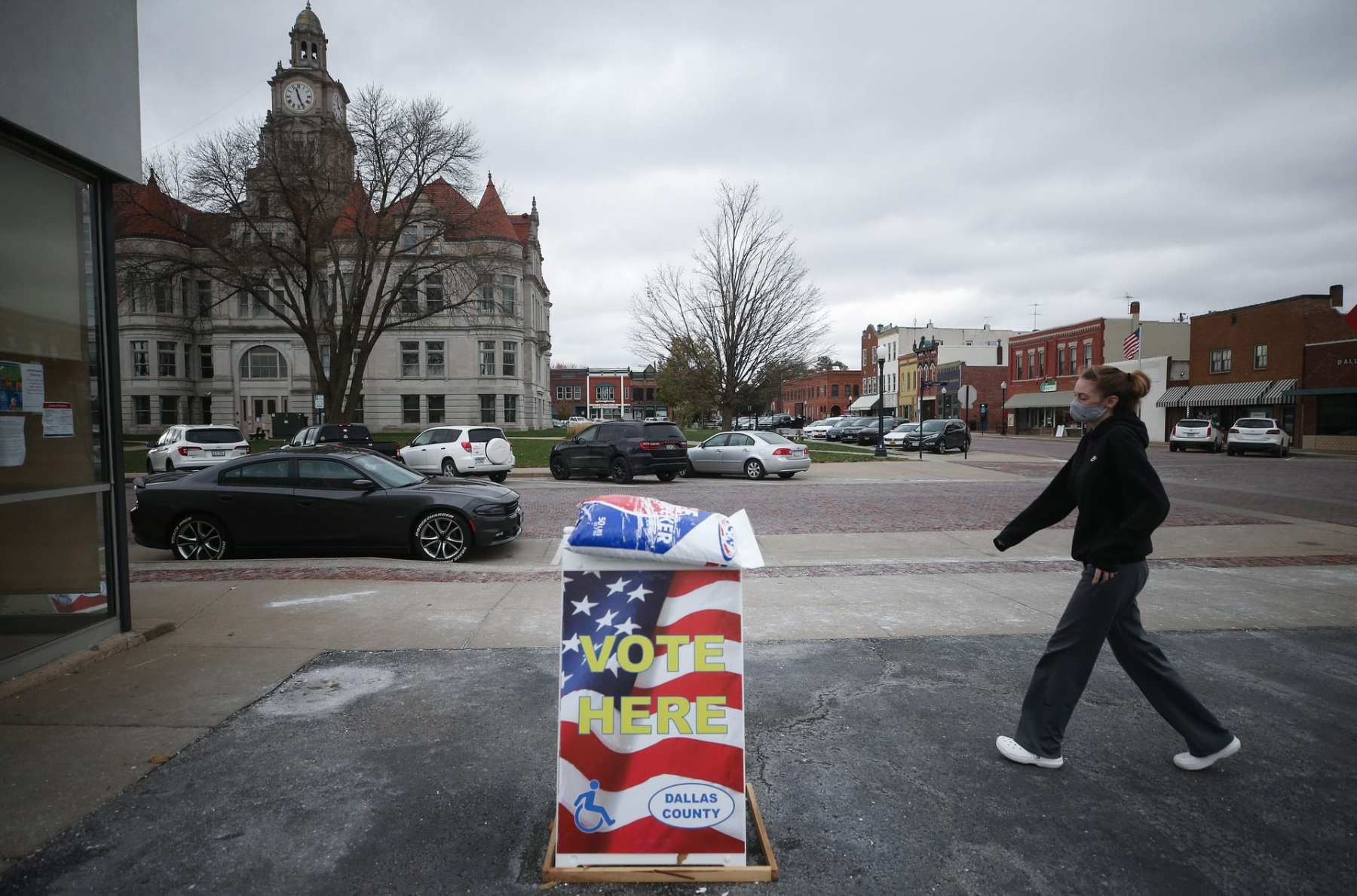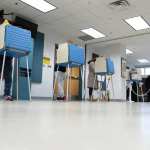On March 8, Republican Iowa Gov. Kim Reynolds signed this bill into law.
Under the law:
- The number of early voting days in the state will be cut, from 29 to 20 days.
- Polls will close one hour earlier during primary and general elections, at 9 p.m. instead of 8 p.m.
- Absentee ballots must be returned by the close of the polls on Election Day. The current system allowed ballots to be counted days later as long as they were postmarked before Election Day.
- Each county can have only one ballot drop box.
- Local election officials face felony charges if they violate provisions of the law.
- There will be new limitations on who can return a person’s absentee ballot to an election office.
Republican state legislators in Iowa, embracing false and dangerous claims about voter fraud, are fast-tracking a bill that would add restrictions to early and absentee voting.
While the exact proposals are still being debated, the legislation is expected to reduce the number of early voting days, limit when election officials can mail absentee ballot request forms to voters, and limit the use of drop boxes for completed ballots.
Nearly 1.7 million of Iowa’s roughly 3.1 million residents voted in the 2020 election, a record. More than 1 million of them voted absentee, another record. The voter turnout helped Iowa Republicans expand their majorities in the statehouse and flip two of the state’s four congressional districts.
Iowa Republican Rep. Bobby Kaufmann, one of the bill’s sponsors, defended the bill during a public hearing on Monday, saying that while the November election ran well, people don’t trust the U.S. election system. Kaufmann did not acknowledge that the public mistrust has been fueled by the false narrative from former President Donald Trump and other Republicans that the election was stolen. Fact checkers have rated this false, and the federal government called the November 3 election “the most secure in American history.”
“The ultimate voter suppression is a very large swath of the electorate not having faith in our election systems, and for whatever reason, political or not, there are thousands upon thousands of Iowans that do not have faith in our election systems,” he said.
Iowa, where the Republican Party plans to hold the first-in-the-nation presidential caucuses in 2024, is among a handful of states with Republican-led statehouses that are quickly advancing bills that experts warn will make it harder to vote. Many of the bills are based on false accusations of voter fraud in the November election, often tied to urban Black voters in swing states.
In Georgia, lawmakers have introduced a sweeping bill that would add restrictions to early voting, including new ID requirements to vote by mail. In Arizona, a bill would allow the legislature to overturn the results of a presidential election.
The Brennan Center for Justice is keeping track of voting bills moving through state legislatures and estimates that, as of early February, at least 36 states have introduced, prefiled or carried over more than 165 bills that they describe as “restrictive.”
Iowa Republicans passed the bill in the state Senate on Tuesday, one week after filing it. They were scheduled to vote on it in the state House on Wednesday.
During one of the first votes on the Iowa legislation last week, a Republican lawmaker promoted debunked conspiracy theories about widespread voter fraud.
“I think myself that Iowans’ votes were disenfranchised by some shady dealings in five cities around the country that I think shows what happens when you don’t strengthen your election system, when you allow people to game elections to the point that they did in cities such as Philadelphia,” Sen. Jason Schultz said ahead of a subcommittee vote Wednesday.
The new election bill, first made public on February 16, would add restrictions on when election officials can mail absentee ballot request forms to voters. It would also limit drop boxes to one per Iowa county. Another proposal would criminally charge local election officials who violate the bill if it becomes law. Legislators are also considering earlier times for closing polls and requiring absentee ballots to be returned.
A current version of the bill would reduce the number of days that people can vote early in Iowa from 29 days to 18 days. Kaufmann has defended the change by saying it puts Iowa more in line with the national average.
Lia Merivaki, an assistant professor of American politics at Mississippi State University, said the shortened early voting will not address purported concerns about election integrity.
“In terms of say, reducing voter fraud, it is not clear how this policy reaches the goal,” she said in an email.
Iowa used to have one of the longest early voting periods in the country. In 2017, the new Republican-controlled legislature passed a voter ID bill that reduced the period from 40 days to the current 29 days.
The Iowa State Association of County Auditors, which represents the local officials who help administer elections in the state, opposes the bill.
Ryan Dokter, president of the association and an election official in northwest Iowa, said during virtual testimony last week that the shortened early voting period: “Increases staffing needs for the counties over time, and also creates opportunities for mistakes.”
Kaufmann said on Monday that Republicans plan to send the measure to Republican Gov. Kim Reynolds on Wednesday. Reynolds told reporters last week that she was open to reviewing the bill.
A spokesman for the governor did not immediately respond to a request from The 19th for comment.






